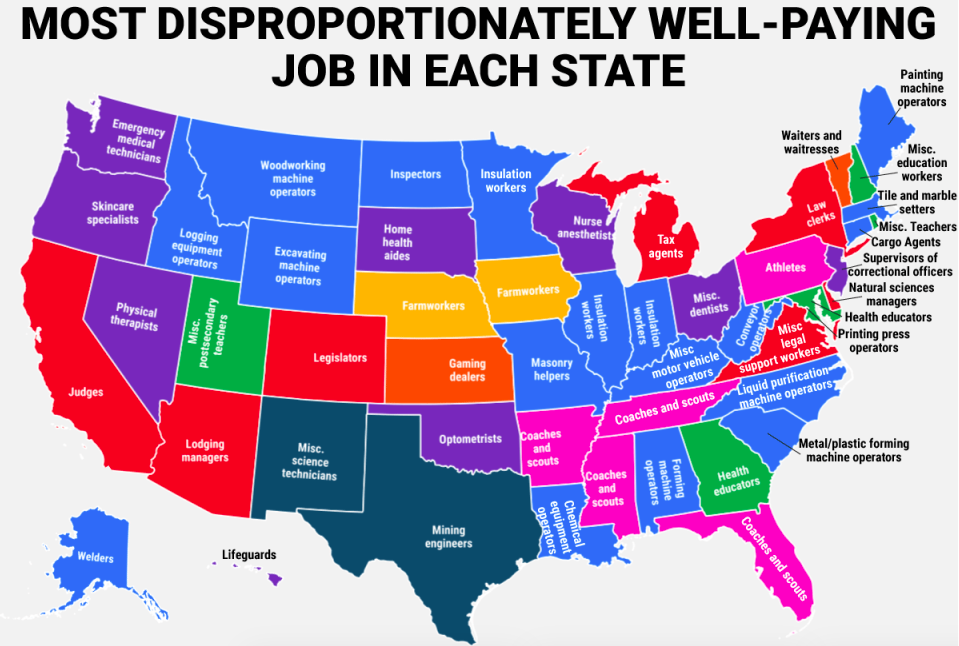The Highest Paying Jobs in Each State
By:
A new Business Insider job map compiles employment wages for hundreds of jobs across the country. It illustrates how employees working the same job can get paid more depending on what state they live in. The map, using Bureau of Labor Statistics (BLS) data, lists the job in each state that receives the highest pay compared to that job's average salary at both the state and national levels.
Printing press operators currently not working in the Washington, D.C. area, hold on to your seats: you're likely getting paid significantly less than your colleagues in the nation's capital.
Related: Why Millennials Change Jobs
 Business Insider - businessinsider.com
Business Insider - businessinsider.com
Business Insider used the BLS's Occupational Employment Statistics program, which compiles wage information for hundreds of different job occupations across national, state, and metropolitan levels. The results were startling in some cases: In D.C., printing press operators, for example, make approximately 120 percent more than the national average—$80,690 in D.C. as opposed to $36,700 nationally. Other disproportionately high paying jobs are judicial law clerks in New York (104 percent more), lifeguards and other recreational protective service workers in Hawaii (73 percent more), and Judges, magistrate judges, and magistrates in California (62 percent more).
According to the BLS, those numbers can be at least partially explained by a host of different factors, including the skill set demand (think Hawaii), geographic industry and union presence (think industry-heavy states with auto factories), and the definition of the job (law clerks in New York could be a broader category than it is in other states). As for printing press operators in D.C., higher salaries might be traced to a higher need for things like engraving for government officials.
Head over to Business Insider to check out a full breakdown of each state's highest paying job its variance from the national average.
